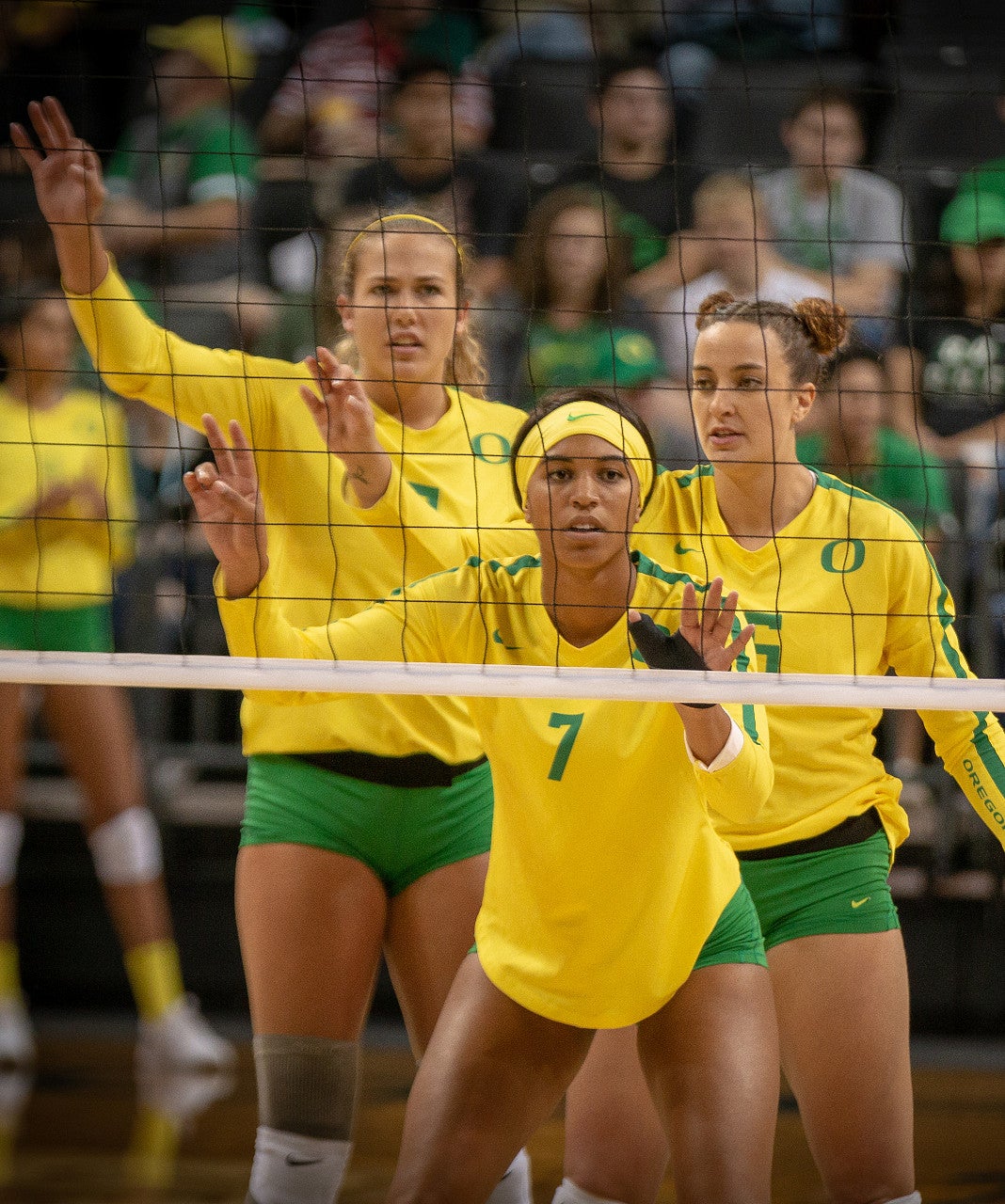
Please be aware of these policies when planning your course and conducting final exams. The Office of the Provost hosts an Academic Policy library that covers many topics instructors should review.

Course Attendance and Engagement Policy
This is a new policy approved by the University Senate in Spring of 2022, effective Fall 2022. The policy provides parameters for course attendance, engagement and make-up policies.
As you prepare for Fall term, we’d like to offer some guidance given that we will still have students affected by COVID.
If you are teaching a class that has Mandatory First Class Attendance, we encourage you to waive the first class meeting as allowed by the policy for students who contact you for a waiver and self-report that they are isolating for COVID-related reasons.
In addition, as you develop your course attendance policies, we encourage you to consider how those policies can provide optimal flexibility for students who might experience longer absences during the term due to illness. Given that the new Course Attendance and Engagement Policy essentially requires “no excuse” course policies, we are not asking you to distinguish between COVID related and non-COVID related absences, but rather to craft general absence and make up policies to provide as much flexibility to students as pedagogically possible and appropriate for your course.
See the University’s COVID-19 Safety Resources for additional information.
Incomplete Policy
What is an Incomplete and When is it Appropriate?
A grade of "I" (Incomplete) represents an agreement between an instructor and a student to extend the deadline for coursework completion. Incompletes shall be granted when the instructor determines that the student meets all the following criteria. The student:
- has been making satisfactory progress on coursework as determined by the criteria in the syllabus;
- has been active in the course;
- is unable to complete a portion of the course requirements due to extenuating circumstances beyond their control that occurred after the last day to drop a class (End of Week 7 of Fall/Winter/Spring terms; variable dates for summer courses);
- is able to independently complete the remaining requirements without attending additional classes beyond the term or receiving additional instruction; and
- requests an Incomplete by the published deadline
Accessible Education Center (AEC) and Accommodations

Instructor Responsibilities
Instructors have the responsibility to ensure full access for students with disabilities by responding to a student's need or request for accommodations as outlined here. The University of Oregon has a flexible and individualized approach to accommodations and strives to create an inclusive learning environment for not only students with disabilities, but for all students by incorporating principles of Universal Design for Instruction. It is useful to examine assumptions that you might have about disabilities, limitations, or perceived challenges, especially in advising or mentoring relationships. Sometimes students are unintentionally discouraged from specific fields of study based on assumptions and comments that are inaccurate and harmful. Students with approved accommodations should present you with a notification letter from AEC. If they request an accommodation but do not have a notification letter, refer them to AEC.
If a student presents you with a notification letter from the Accessible Education Center (AEC)
You have the responsibility to cooperate with the AEC in providing accommodations in a reasonable and timely manner. Any concerns or questions that you have should be addressed immediately with the student, or by consulting with an AEC Advisor. The letter will be emailed to you and may also be provided in hard copy by the student. It describes accommodations that are reasonable based on the student’s specific situation and legal mandates. During office hours or at another convenient time, discuss the letter and the accommodations with the student. This should be a confidential and private conversation.
Resources: See AEC Website for more complete information and support in working with students who need accommodations.
Syllabus Policy
The University Senate passed a syllabus requirement in Spring of 2021. This policy states that instructors shall provide a syllabus for all university undergraduate courses (including 400/500 level courses) and that the syllabus must be made available to students (hard copy or online as a downloadable document) on the first day of class or sooner. It is strongly recommended that instructors provide a syllabus for graduate courses. This link takes you to a Canvas page of all Office of the Provost approved syllabus statements that you can import into your Canvas sites. In addition, due to Oregon House Bill 2919, instructors should not list any required course materials on their syllabus that have not been reported through the university’s course materials reporting process.
The following information, at minimum, should be included in the syllabus:
- INSTRUCTOR INFORMATION: instructor’s name, office/room number, uoregon e-mail address and any other means of contact desired
- OFFICE HOURS: office hours and a statement indicating how to contact the faculty member for an appointment outside office hours
- COURSE OBJECTIVES: overall course objectives and expected learning outcomes as approved by the UOCC and documented in CourseLeaf
- if course meets any Core Education requirements, a statement describing which of the following requirements it meets and why
- Area of Inquiry (Social Science, Natural Science, or Arts and Letters) - see sample syllabus statements here)
- Also include which Methods of Inquiry are covered
- Cultural Literacy (Difference, Inequality and Agency OR Global Perspectives)
- At a minimum, include Core Education Council approved statement and learning outcomes
- Area of Inquiry (Social Science, Natural Science, or Arts and Letters) - see sample syllabus statements here)
- if course meets any Core Education requirements, a statement describing which of the following requirements it meets and why
- GRADE POLICIES: grade policies – describes the standards for each level of work (including A+ - see https://registrar.uoregon.edu/current-students/grading-system) grading criteria and expectations, for example grading rubrics
- ABSENCES: clear absence policy that is pedagogically appropriate for the specific course and compliant with the Course Attendance and Engagement Policy.
- MATERIALS AND ACTIVITIES: lists of any required readings, assignments, examinations, special materials, and extracurricular activities
- CLASSROOM BEHAVIOR: statement on expected classroom behavior (e.g., use of cell phones, recording devices, etc.)
- UNIVERSITY POLICIES: statement on or link to policies on (see Office of the Provost approved language):
- academic misconduct
- accessible education and accommodations
- to mandatory reporting obligations
- emergency policies – weather, fire, active shooter
Approved By: University Senate
Date: 05/19/2021
Motion Number: US20/21-13
Revision History: First version approved 05/19/2021
Original Source: https://senate.uoregon.edu/senate-motions/us2021-13-course-policies-canvas-use-syllabi-and-office-hours
Canvas Policy
For all undergraduate classes (including 400/500 level courses) with more than 5 students, instructors shall publish at least one Canvas site by the first day of each term’s classes that is used at a minimum for the communication of course information including:
- Course syllabus
- For classes where progress is not communicated individually to students through other means, provide available information on student progress to date. This information is meant to help students make decisions about the course, such as continuing in the course or changing the grade option. As such, this shall be done by at least two student decision points of the term:
- By the end of Week 6 (prior to deadline to withdraw from a class or change grading option which is end of Week 7)
- Prior to the final exam
- Other essential course information
Graduate classes with more than 5 students are encouraged to have a Canvas site that is published by the first day of each term’s classes and be used at a minimum for the communication of course information, as listed above.
Approved By: University Senate
Date: 05/19/2021
Motion Number: US20/21-13
Revision History: First version approved 05/19/2021
Original Source: https://senate.uoregon.edu/senate-motions/us2021-13-course-policies-canvas-use-syllabi-and-office-hours

Attendance and Religious Observances
Upon request, the university will make reasonable accommodations for students who are unable to attend a class due to a religious observance. The University of Oregon is committed to compliance with all applicable state and federal laws, and regulations relating to religious accommodations of its stakeholders, and respects the right of all students and employees to observe their religious holidays. Faculty and staff will make reasonable accommodations, upon request, for such observances.
Students that need to be absent from a class for religious obligation or observance reasons had to make arrangements with instructors by the end of the second week of the term by completing the Student Religious Accommodation Request form found on this page. You can use the Religious Observances Calendar to identify events, classes, exams, or UO activities that may intersect with religious observances.
This policy is operationalized through the “Student Religious Accommodation Request” process found on the University Registrar website. The Office of the Provost website provides a syllabus statement on this subject found under resources below.
Source: University Discrimination policy
Resources:
Registrar – Religious Observance Calendar and Form
Office of the Provost – Syllabus statement on Religious Accommodation

Student Attendance and University-sponsored Events
Team travel may result in student participants (student-athletes, cheerleaders, band members, etc.) in athletic events missing classes in terms when their sport is in season. Because they are traveling for university-sponsored activities, faculty are strongly encouraged to make pedagogically sound and justifiable accommodations that will enable the students to be successful in the classroom, just as we would encourage such accommodations for other students traveling on university-sponsored activities. However, this request has limits and conditions:
-
Students are given a letter to share with instructors at the beginning of every term that reports when they will be traveling. It is the student’s responsibility to share this letter with their instructors and to discuss travel conflicts in time to arrange for appropriate accommodations.
-
In classes with substantial class participation, project or lab work, appropriate accommodations may not be possible. In those instances, the student should be informed that the course is not a good fit in a term with significant travel. Under no circumstances should the instructor offer an accommodation that is pedagogically unsound or that would be unavailable to other students. It is especially important that student-athletes in NCAA governed sports are not provided academic extra benefits. See policy here.
Dead Week and Final Exams
DEAD WEEK
Faculty legislation controls assignments that may be required during the last week of regular classes, commonly known as Dead Week. Make sure your syllabus clearly specifies any project that will be due during Dead Week.
In the week preceding final examinations during fall, winter, and spring terms:
- No examination worth more than 20% of the final grade will be given, with the exception of make-up examinations.
- No final examinations will be given under any guise.
- No projects will be due unless they have been clearly specified on the class syllabus within the first two weeks of the term.
- Take-home examinations will be due no earlier than the day of the formally assigned final examination for the class in question.
Questions about these policies should be addressed to the Associate Vice Provost for Academic Affairs, rcb@uoregon.edu.
FINAL EXAMS
Multiple Examinations
Students who are scheduled for more than three examinations within one calendar day may take the additional examination later in the week. See this page for more information about how this works.
Examination Conflicts
In the event that a student is scheduled for two or more exams at the same time, the following policies assist with resolving the conflict:
- For regular courses with examinations scheduled at the same time, the course with the largest enrollment must provide an alternate examination.
- For conflicts between regular courses and combined examinations, the combined examination course must provide the alternate examination.
- For combined examinations with conflicts, the largest combined enrollment course must provide the alternate examination.
Implementing these Policies in Your Courses
The Teaching Engagement Program and UO Online offer a Syllabus “Starter” and other Fall 2022 Course Resources, which you are warmly welcome to adapt and use. These resources have been created with new UO academic polices—and the needs some faculty have expressed to make it easier to connect students to resources and to build students’ motivation and basic academic skills—in mind.
You’ll find sample class absence policies and even a “Report Absences Here” module. You can add the module to your Canvas course to direct student communications about absences to a single place, highlight "UO dates to know" (supportive student resources/events and academic deadlines for things like withdrawing from or adding a class). It also asks students questions meant bolster their agency in planning and decision-making about how they will keep up with the course.
As always, TEP and UO Online are available to talk with you about your course plans. Contact them with this simple form. They’re also offering several workshops and events to kick off the new year.
